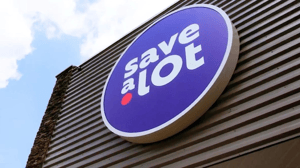Kroger CFO Succession Underscores Diverse Revenue of Restock SchemeKroger CFO Succession Underscores Diverse Revenue of Restock Scheme
Analysts praise outgoing CFO Mike Schlotman while eyeing financial turnaround as Gary Millerchip takes office.

While the market knows relatively little about the Kroger Co.'s incoming CFO, it should know this: Gary Millerchip has big shoes to fill and ambitious goals to meet.
Millerchip, 47, will take the Kroger CFO seat in April as its longtime occupant of 18 years, J. Michael Schlotman, begins a transition to retirement after a 30-year career at the Cincinnati retailer. Millerchip will also arrive at a critical juncture of the Restock Kroger strategy engineered in part by his predecessor, where the heavy investments and partnerships forged in this first year are expected to begin turning into heavier financial rewards. His elevation from his current role as CEO of Kroger’s Personal Finance business underscores the importance of alternative revenue streams as part of the Restock outlook, analysts say.
He also has a hard to act to follow in Schlotman, for whom admiration poured from the financial community upon the announcement of his retirement this week.
Analysts following Kroger say Schlotman played a critical role for Kroger as it navigated a rapidly changing landscape for U.S. grocers—with much of that change influenced by his own strategies. They described Schlotman as a highly skilled financial executive with a feel for the art of retailing that’s rare among peers.
“Mr. Schlotman, in our opinion, is a fierce competitor and provided Kroger invaluable financial stewardship over the last two decades through unprecedented change in the consumable industry,” Scott Mushkin, an analyst for Wolfe Research, wrote in a recent note to clients. “Kroger and investors, in our minds, have gained much from his service.”
Schlotman started his career with the Coopers & Lybrand accounting firm in Louisville, Ky., and joined Kroger in 1985. He was elected VP and corporate controller in 1995 and was then named CFO in January 2000, succeeding Rodney McMullen, who since became Kroger’s CEO.
McMullen described having “personally worked side by side for several decades” with Schlotman.
Chuck Cerankosky, an analyst with Northcoast Research in Cleveland, said Schlotman was tested in the 1980s when Kroger fought off two runs at a leveraged buyout and recapitalized, the latter event eventually leading to strategic M&A activity including the $8 billion merger with Fred Meyer Inc. in 1998. That deal helped Kroger reach the West Coast and become the nation’s largest traditional U.S. supermarket retailer by annual sales, a lead it has dramatically grown in the two decades since.
“What’s unique about Mike is how much he’s been through with corporate financing at Kroger,” Cerankosky said in an interview. “He had a great feel for corporate strategy and merchandising you don’t often find in financial people.”
Schlotman was named CFO shortly before Kroger embarked on a customer-centric strategy that came to be known as “Customer 1st,” pioneering the use of shopper data to inform decisions about pricing, assortment and development while building customer loyalty. That resulted in a remarkable span of more than 12 years of consecutive quarterly same-store sales increases even as Walmart rapidly blanketed the country with its Supercenters and grocery stores. After the streak came to an end, Kroger developed its newly launched “Restock” plan, which contemplates turning Kroger into an omnichannel growth company seeking to win a greater share of all food sales.
Restock’s ambitious financial goals include realizing $400 million in incremental earnings before interest and taxes (EBIT) by fiscal 2020.
Chris Mandeville, an analyst with Jefferies, described Schlotman as one of the “chief architects” of the Restock strategy and noted he will be stepping down just as the financial rewards of Restock will be arriving, if all goes to plan.
“We believe this coming year will prove to be a defining one for Mr. Schlotman’s legacy,” Mandeville said in a note to clients. “As such, we'd expect that Kroger does everything in its power to begin showing [quarter on quarter] progress and, eventually, EBITA growth within the next few quarters.”
Millerchip, a native of the United Kingdom, came to Kroger in 2008 from Royal Bank of Scotland, where he led the bank’s personal credit card business among other roles.
In his current assignment, Millerchip leads a division of Kroger that delivers financial and retail services such as credit cards and insurance through Kroger-owned stores. Officials at Kroger’s investor conference earlier this year highlighted growing revenue from that division, noting 8% growth in 2016, 13% in 2017 and an expected 20% this year. These alternative revenue streams, which also include revenues from media, “provides that glide path through the $400 million by 2020,” said Keith Dailey, VP of corporate affairs for Kroger.
At that same event, Millerchip spoke of the company’s new partnership with Walgreens, which includes utilizing some of that chain’s stores as pickup points for online orders and establishing satellite Kroger food departments inside of them.
“We think it has the potential to significantly accelerate our vision for serving America through food inspiration and uplift,” Millerchip said, by expanding Kroger’s core strengths in food and technology with Walgreen locations, loyalty and expertise in health and beauty. “When you combine those two sets of unique assets, we believe we truly have an opportunity to create a shopping experience and even more importantly a level of convenience that’s really hard for anybody in the U.S. to replicate.”
About the Author
You May Also Like






